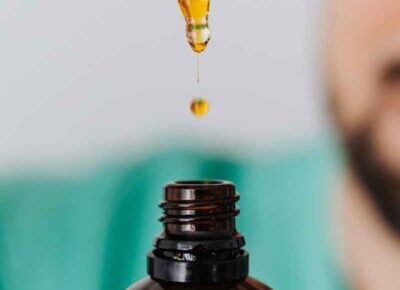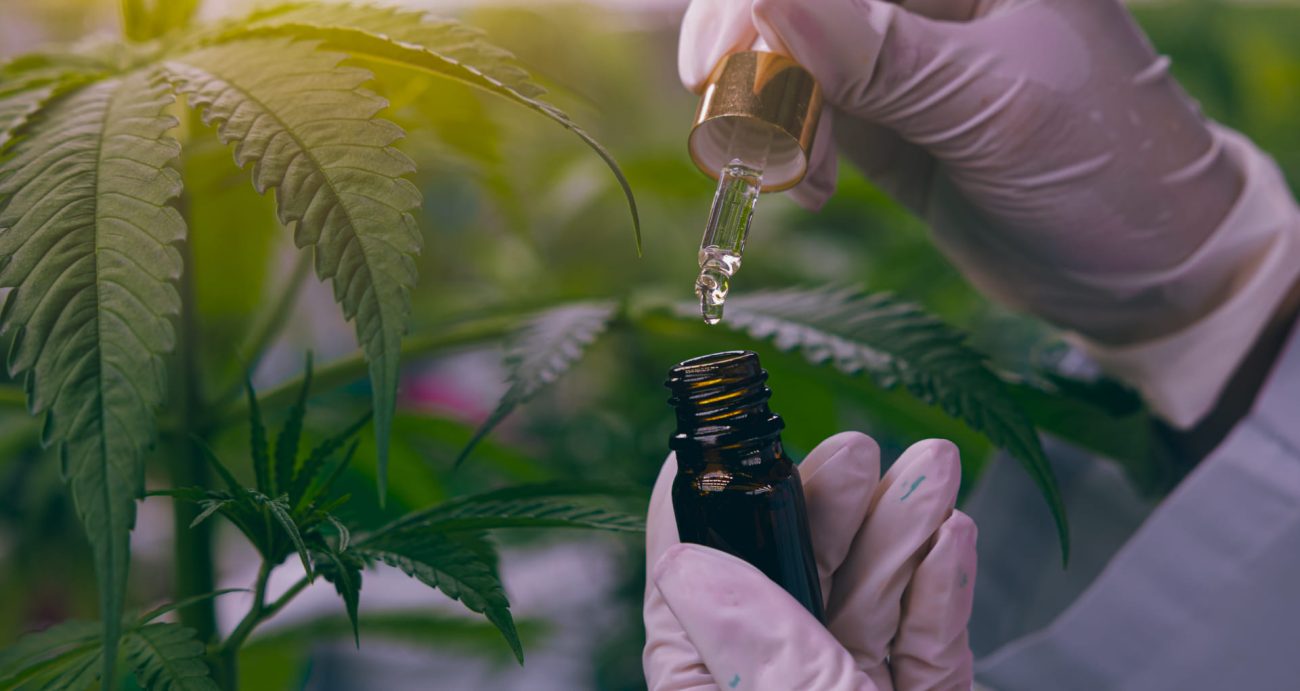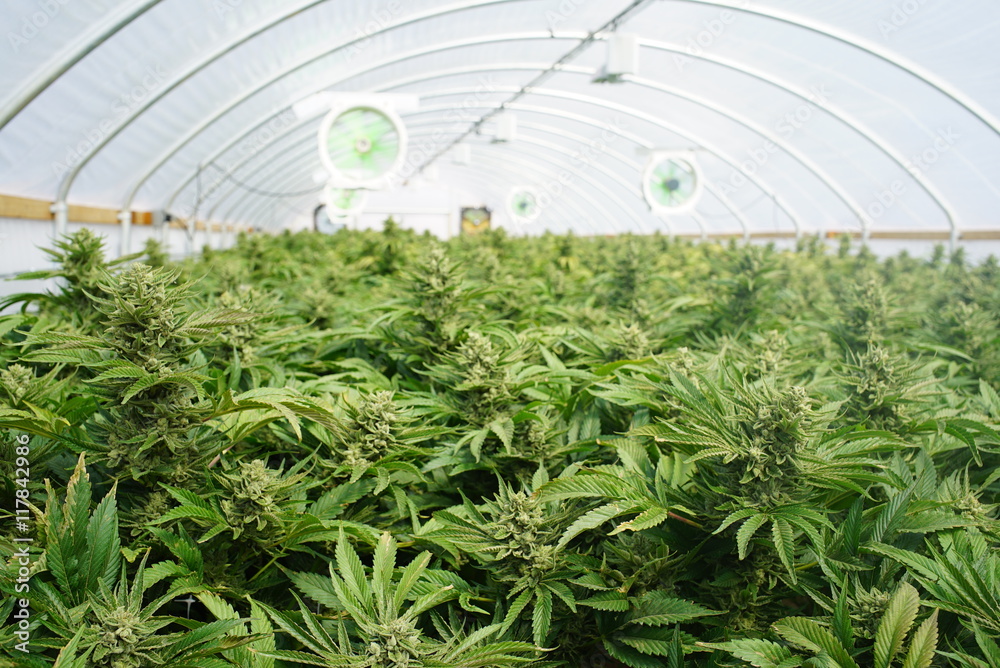The cannabis market in the US has grown exponentially in the last decade and with it, so has the public’s necessity to learn more about cannabis’ different components in order to make informed decisions before consuming any related products.
Although the cannabis plant contains more than 100 cannabinoids, the attention has focused mostly on 2: THC and CBD. These two cannabinoids have the ability to interact with the human body’s endocannabinoid system, reestablishing faulty or non-existent processes within the central nervous system and helping bring balance when the body alone can’t find it due to illness or other issues causing malfunction.
Delta-8 and delta-9 THC are two forms of this cannabinoid found in different varieties of the cannabis sativa plant. While delta-9 THC is the most well-known and abundant form, delta-8 is gaining popularity for its unique properties. Both compounds have some common uses but they also have significant differences which make them distinct from one another.
Are you curious about the differences between delta-8 and delta-9 THC? Wondering which one offers the best benefits or if they are even legal? You’re not alone, and that’s why we explain below these and other questions about these two forms of THC.

What is Delta-8?
Delta-8 is a phytocannabinoid present in small quantities in the hemp plant (a form of cannabis). Because of THC’s limited quantity in the natural form of the plant, delta-8 is the result of extracting THC from hemp CBD which is then synthesized to produce a concentrated form of THC; basically, delta-8 is a synthetic less potent form of THC derived from the hemp plant.
What Are Potential Benefits of Using Delta-8?
Patients often use delta-8 along with other medications to help with depression and prevent substance abuse (this can be accomplished by replacing opioids with delta-8, which has proven to be very effective especially with patients suffering from chronic pain.) Delta-8 is known as being effective at helping patients ease symptoms not only from chronic pain but also from stress, low appetite, nausea and vomiting (particularly due to chemotherapy treatments) and mental health conditions such as depression and bipolar disorder.
What Are Potential Side Effects of Delta-8?
Potential side effects from using delta-8 are anxiety, drowsiness, tachycardia and low blood pressure (to name a few). Since these products are sold over-the-counter and not regulated, there’s potential health risks associated with chemicals and other harmful ingredients used for their fabrication. Patients choosing to use delta-8 products should really vet the products before purchasing and consult with their healthcare provider before introducing them into their care routine. Consult with a doctor immediately if you experience any side effects after consumption.
How Is Delta-8 Consumed?
Patients looking to use delta-8 have several options to choose from, depending on their preferences. The most common ways you will find it for purchase online or in a store are edible products (like delta-8 brownies or delta-8 gummies), tinctures, capsules, creams, lotions or patches, oil or wax (for vaping) or buds or flowers (for smoking).
In Texas though, the Department of State Health Services has banned the processing and manufacturing of smoking hemp products within the state, therefore you won’t find those for sale in dispensaries in the Lone Star state.
Will Delta-8 Show Up in a Drug Test?
The answer is “it depends.” In principle, delta-8 in its pure form shouldn’t show up in a drug test because those tests usually look for traces of delta-9. Nevertheless, given that delta-8 products are not regulated and there is no certainty about all the ingredients that go into their production, nor about their quality or purity, there is always a risk that traces of delta-9 can be found in these products, which would produce a positive drug test. In conclusion, the more conservative approach is to assume that either form of THC will result in a positive drug test.
Is Delta-8 Legal in Texas?
Yes, delta-8 has been legal in Texas since June 2019 when the state legislature signed into law House Bill 1325 which authorizes and regulates the production, manufacture and retail sale of hemp crops and derived products. As this law was adopted, many retail stores popped-up all over the state offering delta-8 and other hemp derived products to Texan consumers.
This state law came to be in response to the legalization of hemp at the federal level with the adoption of the Farm Bill in 2018, which legalized the processing, manufacture and distribution of all hemp derived products (including delta-8 related products) in any state that allows it.
What is Delta-9 THC?
Delta-9 THC is the more commonly known form of THC, the component that can cause psychoactive effects also known as “high” when consumed. Delta-9 is naturally abundant in the marijuana plant. In contrast to delta-8, its extraction originates in a different type of cannabis plant, its psychoactive effects are more potent, its elaboration doesn’t require the use of chemicals and therefore it’s a natural component.
What Are Potential Benefits Of Using Delta-9 THC?
Delta-9 might benefit patients suffering from conditions like depression, glaucoma, cancer, epilepsy and other seizure disorders, post-traumatic stress syndrome (PTSD), multiple sclerosis (MS), muscle spasticity and other neurodegenerative diseases, chronic pain, autism and autoimmune diseases. In fact, delta-9 has proven effective at helping alleviate symptoms such as low appetite, nausea and vomiting (especially in cancer patients undergoing chemotherapy), chronic pain, insomnia, seizure disorders and muscle spasticity as well as promoting relaxation and feelings of happiness.
If you are a qualified patient for medical marijuana in Texas, book an appointment here to get your prescription.
What are Potential Side Effects of Using Delta-9 THC?
Potential side effects from using delta-9 for some patients include paranoia, low blood pressure, confusion, sedation or dysphoria (feeling uneasy, unhappy or dissatisfied). These side effects can be avoided by following your doctor’s advice to “start low and go slow”.
What is delta-9 THC distillate?
Delta-9 distillate is a liquid extracted from cannabis plant crystals and later converted into a translucent oil. The result of this extraction process and conversion produces a liquid with a high concentration of THC. The distillate is then added to a carrier oil to create tinctures or infused in cannabis products such as gummies or baked goods.
How Is Delta-9 Consumed?
There are several options available for patients who have a prescription to consume delta-9. The more common forms are:
– Edibles: gummies, baked goods or chocolates (onset time is delayed but the effect is long lasting.)
– Tinctures: these offer THC in liquid form. They usually have a dropper to help measure precise doses and are applied sublingually for faster absorption.
– Flowers, buds and vape cartridges: this form of THC can be smoked or vaped.
In Texas, all but the last forms can be consumed as there is a legal ban in place for producing, manufacturing and distributing smoking THC products.
Is Delta-9 safe?
Yes, delta-9 is safe when consumed as medical marijuana which is the only legal way to access it in Texas, as most individuals can tolerate delta-9 THC well. Given that medical marijuana is subjected to strict controls, patients can rest assured that they are consuming a product with high quality and purity standards. Also, your cannabis doctor will prescribe a compound customized to your medical needs and minimize potential side effects by determining an adequate THC:CBD ratio, effectively increasing already high safety standards.
Will Delta-9 Show Up on a Drug Test?
Yes, delta-9 products will result in a positive drug test.
Notice that patients consuming delta-9 are getting access to medical marijuana via an official program, must have a prescription and can medically justify the presence of THC in their systems; this is not the case for delta-8 users, so factor accordingly when deciding which THC form to use or whether or not to use it.
Is Delta-9 Legal in Texas?
Yes, Texas is one of the states that have implemented marijuana programs so delta-9 THC is legal in the Lone Star state, but its use is highly restricted and strictly regulated.
Delta-9 THC derived products are legal in Texas provided their processing, manufacture and distribution follow strict requirements: the THC content is capped at 1%, distribution is restricted exclusively to qualified patients under the TCUP, it requires a prescription from a registered medical cannabis doctor that can only be filled by a licensed dispensary
Because of its psychoactive effects, delta-9 is still considered illegal at the federal level and its commercialization is limited to only certain states that have legalized the use of cannabis for medical or recreational purposes, or both via authorized dispensaries. There are more considerations that are relevant to the legality of both delta-8 and delta-9 THC. Let’s take a closer look into those next.
Are Delta-8 And Delta-9 THC Legal in All 50 States?
The legality of cannabis products depends on 2 aspects: the type of plant used for cannabis extraction, and the laws applicable to that type of product at the specific location where it is intended to be distributed and consumed (both at a federal and a state level).
Cannabis origin: Cannabis can be extracted from different plants, mostly hemp and marijuana. Although these 2 plants are similar, they are not the same and therefore the products derived from each have marked differences (for more in depth information about this, check out our blog on hemp vs. marijuana). In a nutshell, delta-8, hemp and its derivatives are legal at the federal level, delta-9 (marijuana) is not. Because of this, most US consumers have easy and legal access to delta-8 and other hemp products online and at retail stores, but not to delta-9 THC and other marijuana derived products.
Federal and state laws: As we said before, hemp is legal at the federal level but marijuana is not. In principle, you should be able to travel domestically with hemp products and not get in trouble, but that’s not quite true either. Some states have banned the use of hemp products at the state level, so even if hemp is legal at the federal level, it might not be at the state level in some places.
These contradictions are also applicable to marijuana because even though it is illegal at the federal level, many states have adopted laws legalizing the use of marijuana for recreational purposes or medical purposes or both; in that context, the state law prevails within the state borders and consumers might have a legal path to access marijuana for the uses approved by state law.
In conclusion, delta-8 and delta-9 can both be legally accessed in the US, depending on the applicable local law. Traveling between states with delta-8 might be permissible, but you have to check on a case by case basis; traveling with delta-9 between states is not allowed. You can find more information on the legality of cannabis in Texas and the Texas’ Compassionate Use Program here.
How Are Delta-8 and Delta-9 Similar?
Delta-8 and delta-9 share some common features:
- Forms of THC.
- Derived from the cannabis sativa plant family.
- Cause psychoactive effects.
- Interact with CB1 and CB2 receptors in the endocannabinoid system.
- Reduce inflammation, help alleviate pain, curb nausea and vomiting, stimulate appetite so they are useful at providing relief to patients suffering from cancer, chronic pain and neurodegenerative diseases such as MS or spasticity to name just a few.
Delta-8 vs. Delta-9: What Are The Differences?
If you are wondering what is the difference between delta-8 and delta-9, you are not alone. Although both components share some common features, there are marked differences that separate them:
- Origin: Delta-8 is extracted from hemp, delta-9 is generally extracted from marijuana.
- Chemistry: Delta-8 is synthetic, delta-9 is naturally occurring.
- Legality: Delta-8 is legal at the federal level, delta-9 is not.
- Ease of legal access: Delta-8 can be found over-the-counter, delta-9 has restricted access and is only available at dispensaries in states with laws in place legalizing marijuana use.
- Psychoactive effects: Delta-8 is less potent so it causes milder psychoactive effects than delta-9.
A special note about quality, purity and safety: Because hemp is legal at the federal level, there is much less scrutiny about the production process of hemp derived products and they’re not regulated by the FDA. Delta-8 is a synthetic compound that requires the use of an acid to synthesize THC from hemp CBD. Often, harsh chemicals are used in its production, which translates into delta-8 potentially posing health risks because it might contain traces of heavy metals, pesticides, mold or other detrimental components. Also, by not being regulated, consumers can’t be certain about the veracity of the label information in these products. Keep this in mind when choosing over-the-counter products and look for those that have a third party verify the validity of the content information.
Purity, quality and safety are not a concern with delta-9 found in medical cannabis since this is a highly regulated product and the whole process (from cultivation to final sale at authorized dispensaries) is subjected to strict norms that guarantee the purity, quality and safety of the final product.
Is Delta-8 Stronger Than Delta-9?
No, delta-8 is not stronger than delta-9, the reverse is true. This is due to the fact that delta-8 is a synthetic product derived from the hemp plant and its THC (psychoactive component) content is minimal to non-existent. Delta-9 in contrast, is usually derived from the marijuana plant which in its natural state has a high component of THC, making it stronger than delta-8.
Is Delta-8 or Delta-9 Best for You?
In Texas, if you don’t have a qualifying condition, delta-8 might be the only choice available but as we mentioned before, beware of the purity, quality and safety of the products you consider and consult with your physician before including them in your routine.
If you are looking to treat a qualifying medical condition, you are much better off choosing delta-9 THC medical cannabis because this option grants you access to the medical cannabis registry via a cannabis doctor who will take into consideration your medical history, any other medications you are currently taking to avoid negative interactions and can provide continuous support and advice. For example, a medical cannabis doctor will be able to customize a treatment that combines the appropriate ratio of THC:CBD that will allow you to benefit from THC’s medical properties while also limiting its psychoactive effects by combining it with CBD (this is something you don’t get by picking a bottle at a retail store). Medical cannabis also gives you peace of mind in terms of knowing the product you are consuming has a seal of transparency and quality of its components.
So there you have it! Although both delta-8 and delta-9 THC share some common features, there are key differences that set them apart. Knowing those differences will empower you to be able to make the best choice for you.
If you are considering including THC as an option to treat a medical condition, contact us! We can help you identify whether you qualify for the Texas’ Compassionate Use Program (TCUP) and support you all along your healing journey.
FAQs
– Is delta-9 THC legal in Texas?
Delta-9 THC derived products are legal in Texas provided their processing, manufacture and distribution follow strict requirements: the THC content is capped at 1%, distribution is restricted exclusively to qualified patients under the TCUP, it requires a prescription from a registered medical cannabis doctor that can only be filled by a licensed dispensary.
– Is delta-9 THC safe?
Yes, delta-9 is safe when consumed as medical marijuana which is the only legal way to access it in Texas, as most individuals can tolerate delta-9 THC well. Given that medical marijuana is subjected to strict controls, patients can rest assured that they are consuming a product with high quality and purity standards. Also, your cannabis doctor will prescribe a compound customized to your medical needs and minimize potential side effects by determining an adequate THC:CBD ratio.
– Is delta-8 stronger than delta-9?
No, delta-8 is not stronger than delta-9, the reverse is true. This is due to the fact that delta-8 is a synthetic product derived from the hemp plant and its THC (psychoactive component) content is minimal to non-existent. Delta-9 in contrast, is derived usually from the marijuana plant which in its natural state has a high component of THC, making it stronger than delta-8.
– What is the difference between delta-8 and delta-9 THC?
Here are the main differences between delta-8 and delta-9 THC:
- Origin: Delta-8 is extracted from hemp, delta-9 is generally extracted from marijuana.
- Chemistry: Delta-8 is synthetic, delta-9 is naturally occurring.
- Legality: Delta-8 is legal at the federal level, delta-9 is not.
- Ease of legal access: Delta-8 can be found over-the-counter, delta-9 is only available at dispensaries in states with laws in place legalizing marijuana use.
- Psychoactive effects: Delta-8 is less potent so it causes milder psychoactive effects than delta-9.
– Does delta 9 have THC?
Yes, delta-9 is the most well known form of THC, the cannabinoid present in the marijuana plant known for causing psychoactive effects.
– What is delta 9 THC?
Delta-9 THC is the more commonly known form of THC that can cause psychoactive effects also known as “high” when consumed. Delta-9 is naturally abundant in the marijuana plant.
– What is delta-9 THC distillate?
Delta-9 distillate is a liquid extracted from cannabis plant crystals and later converted into a translucent oil. The result of this extraction process and conversion produces a liquid with a high concentration of THC. The distillate is then added to a carrier oil to create tinctures or infused in cannabis products such as gummies or baked goods.











